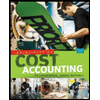Flounder, Inc. has budgeted sales revenues as follows: Credit sales Cash sales Total sales June Past experience indicates that 60% of the credit sales will be collected in the month of sale and the remaining 40% will be collected in the following month. Purchases of inventory are all on account with 50% is paid in the month of purchase and 50% paid in the month following purchase. Budgeted inventory purchases are as follows: July August June July August $139,000 $129,000 $ 95,000 98,000 254,000 $237,000 $383.000 $ 295,000 (a) 200,000 $300.000 222.000 102.000 Other cash disbursements budgeted: (a) selling and administrative expenses of $51.000 each month, (b) dividends of $105,000 will be paid in July, and (c) purchase of equipment in August for $34,000 cash The company's policy is to maintain a minimum cash balance of $50.000 at the end of each month. The company borrows money from the bank at 6% interest if necessary to maintain the minimum cash balance. Borrowed money is repaid in months when there is an excess cash balance. The beginning cash balance on July 1 was $50.000. Assume that borrowed money in this case is for one month.
Master Budget
A master budget can be defined as an estimation of the revenue earned or expenses incurred over a specified period of time in the future and it is generally prepared on a periodic basis which can be either monthly, quarterly, half-yearly, or annually. It helps a business, an organization, or even an individual to manage the money effectively. A budget also helps in monitoring the performance of the people in the organization and helps in better decision-making.
Sales Budget and Selling
A budget is a financial plan designed by an undertaking for a definite period in future which acts as a major contributor towards enhancing the financial success of the business undertaking. The budget generally takes into account both current and future income and expenses.


Trending now
This is a popular solution!
Step by step
Solved in 3 steps









